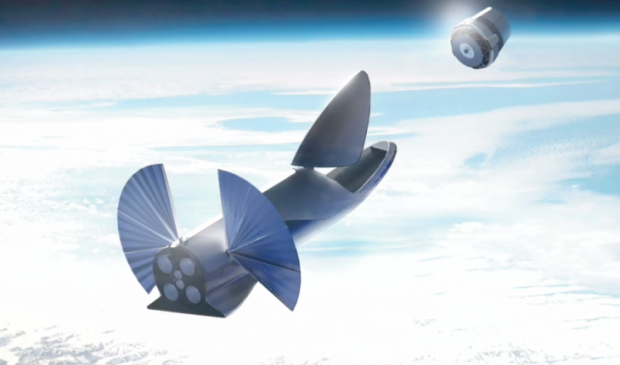
Breaking News
 Pentagon To Send 200 Troops to Nigeria
Pentagon To Send 200 Troops to Nigeria
 Trump Says He May Send Second Aircraft Carrier to Middle East To Prepare for Potential Attack...
Trump Says He May Send Second Aircraft Carrier to Middle East To Prepare for Potential Attack...
 A Market Crash and Recession Are Bullish, Not Bearish
A Market Crash and Recession Are Bullish, Not Bearish
 What Are They Still Hiding? New Epstein Questions Point to a Much Bigger Cover-Up
What Are They Still Hiding? New Epstein Questions Point to a Much Bigger Cover-Up
Top Tech News
 Drone-launching underwater drone hitches a ride on ship and sub hulls
Drone-launching underwater drone hitches a ride on ship and sub hulls
 Humanoid Robots Get "Brains" As Dual-Use Fears Mount
Humanoid Robots Get "Brains" As Dual-Use Fears Mount
 SpaceX Authorized to Increase High Speed Internet Download Speeds 5X Through 2026
SpaceX Authorized to Increase High Speed Internet Download Speeds 5X Through 2026
 Space AI is the Key to the Technological Singularity
Space AI is the Key to the Technological Singularity
 Velocitor X-1 eVTOL could be beating the traffic in just a year
Velocitor X-1 eVTOL could be beating the traffic in just a year
 Starlink smasher? China claims world's best high-powered microwave weapon
Starlink smasher? China claims world's best high-powered microwave weapon
 Wood scraps turn 'useless' desert sand into concrete
Wood scraps turn 'useless' desert sand into concrete
 Let's Do a Detailed Review of Zorin -- Is This Good for Ex-Windows Users?
Let's Do a Detailed Review of Zorin -- Is This Good for Ex-Windows Users?
 The World's First Sodium-Ion Battery EV Is A Winter Range Monster
The World's First Sodium-Ion Battery EV Is A Winter Range Monster
 China's CATL 5C Battery Breakthrough will Make Most Combustion Engine Vehicles OBSOLETE
China's CATL 5C Battery Breakthrough will Make Most Combustion Engine Vehicles OBSOLETE
Forget a space race - Let SpaceX transport you and focus building out the frontier

Companies should forget about trying to close the massive decade plus lead that SpaceX now has with large reusable rockets.
The SpaceX Falcon Heavy is like a DC-10 aircraft and SpaceX will make it 80-90% reusable with 64 tons of payload. The SpaceX BFR will be 100% reusable and will be like a 747 with 150 tons of payload.
The Blue Origin New Glenn rocket plans to have a first stage that can be reused 100 times. It will be able to take 45 tons to low earth orbit. It is expected to make its initial test launch in 2020. It will likely take several years after that for all of the testing to be completed and for reusability to be mastered.
The New Glenn will not be beating the SpaceX Falcon Heavy and will be far less capable than the SpaceX BFR.
There is a race for the global internet satellite network. SpaceX is trying to build out a low earth orbit satellite network of thousands of satellites to provide high-speed internet.
The SpaceX system will have 4,425 satellites using Ka- and Ku-Band spectrum to provide a wide range of broadband and communications services for residential, commercial, institutional, governmental and professional users worldwide. SpaceX has proposed a separate V-Band, where it has proposed an additional constellation of 7,500 satellites operating even closer to Earth.
SpaceX says its end-user terminals will be a small flat panel the size of a laptop. This will use phased array technologies to allow for highly directive, steered antenna beams that track the system's low-Earth orbit satellites.



